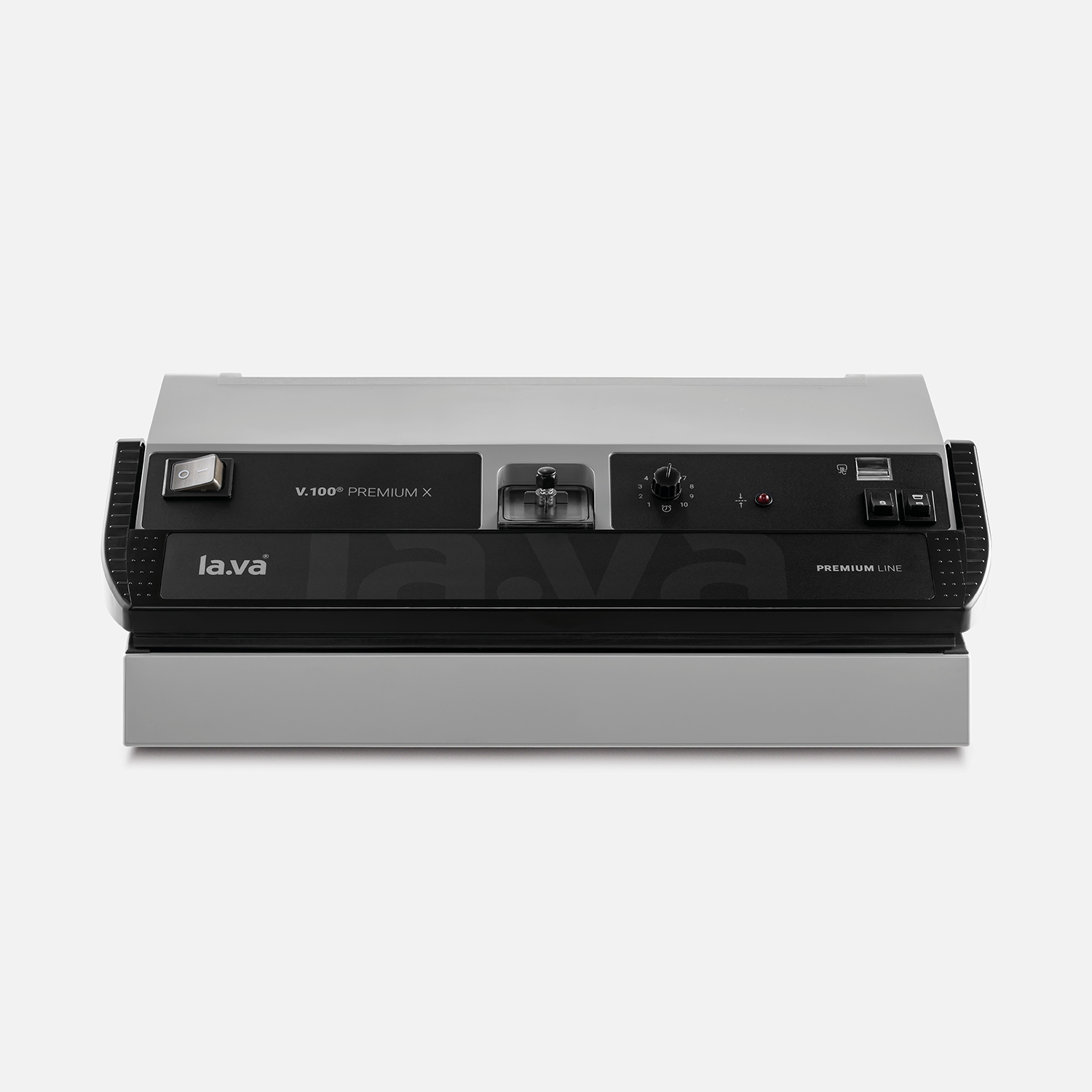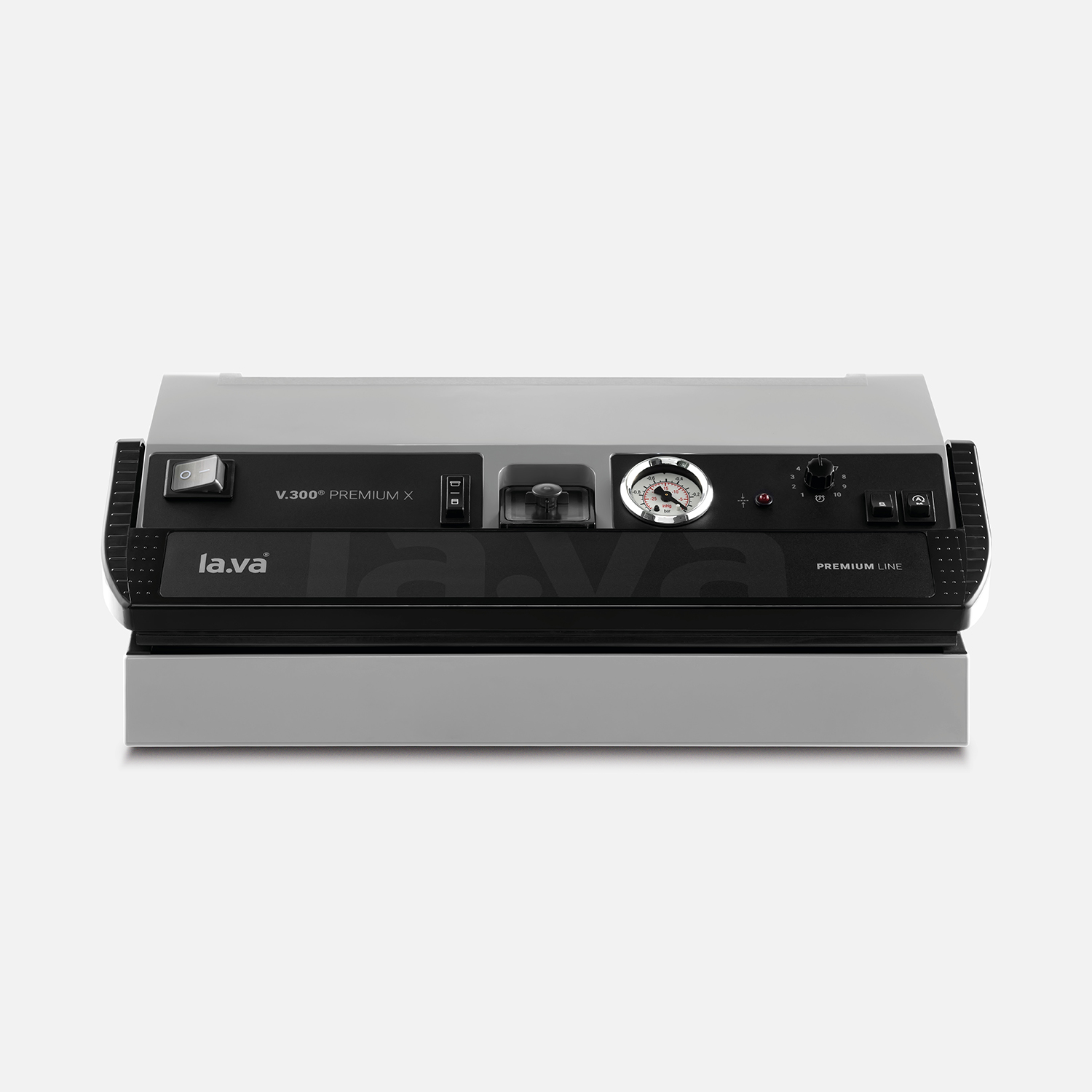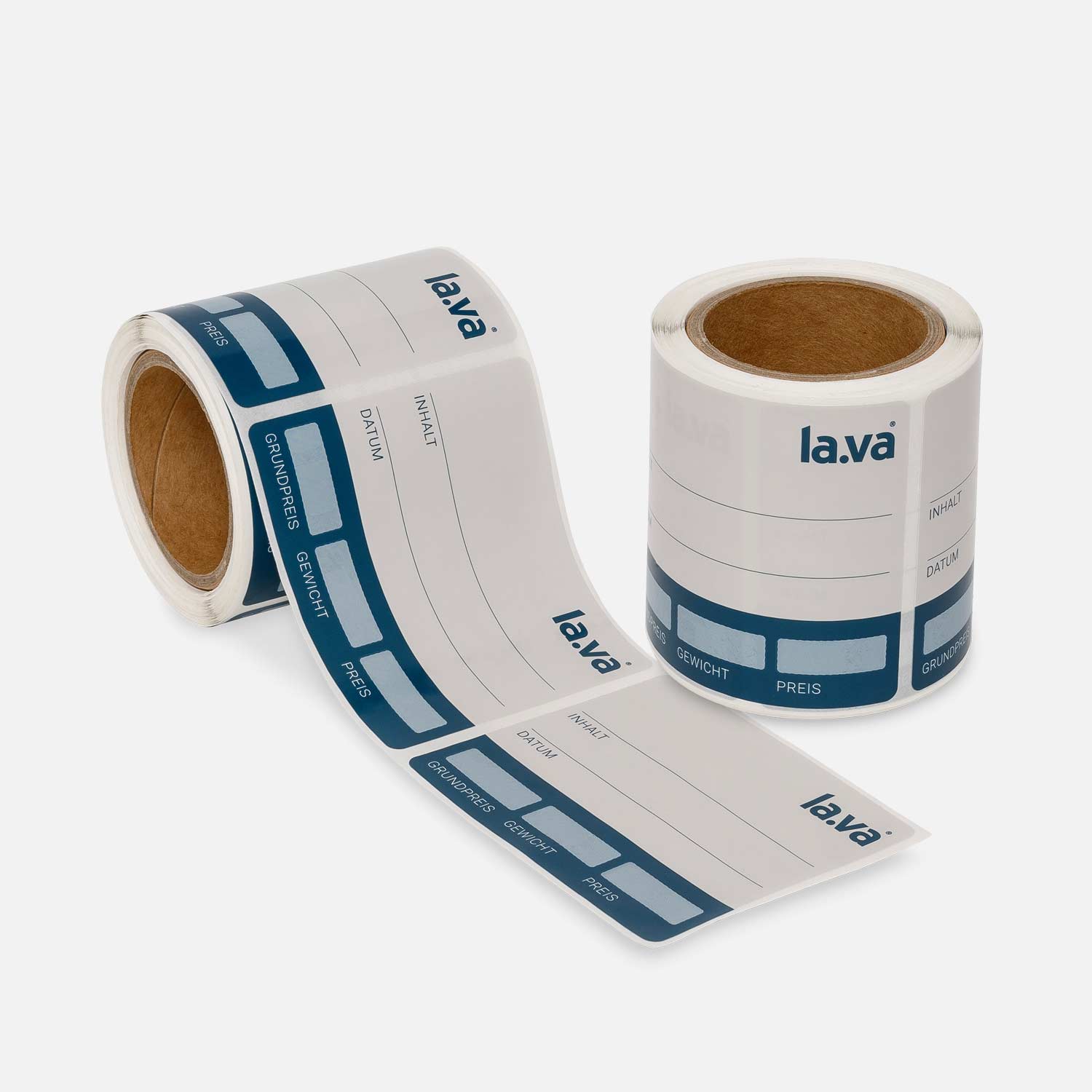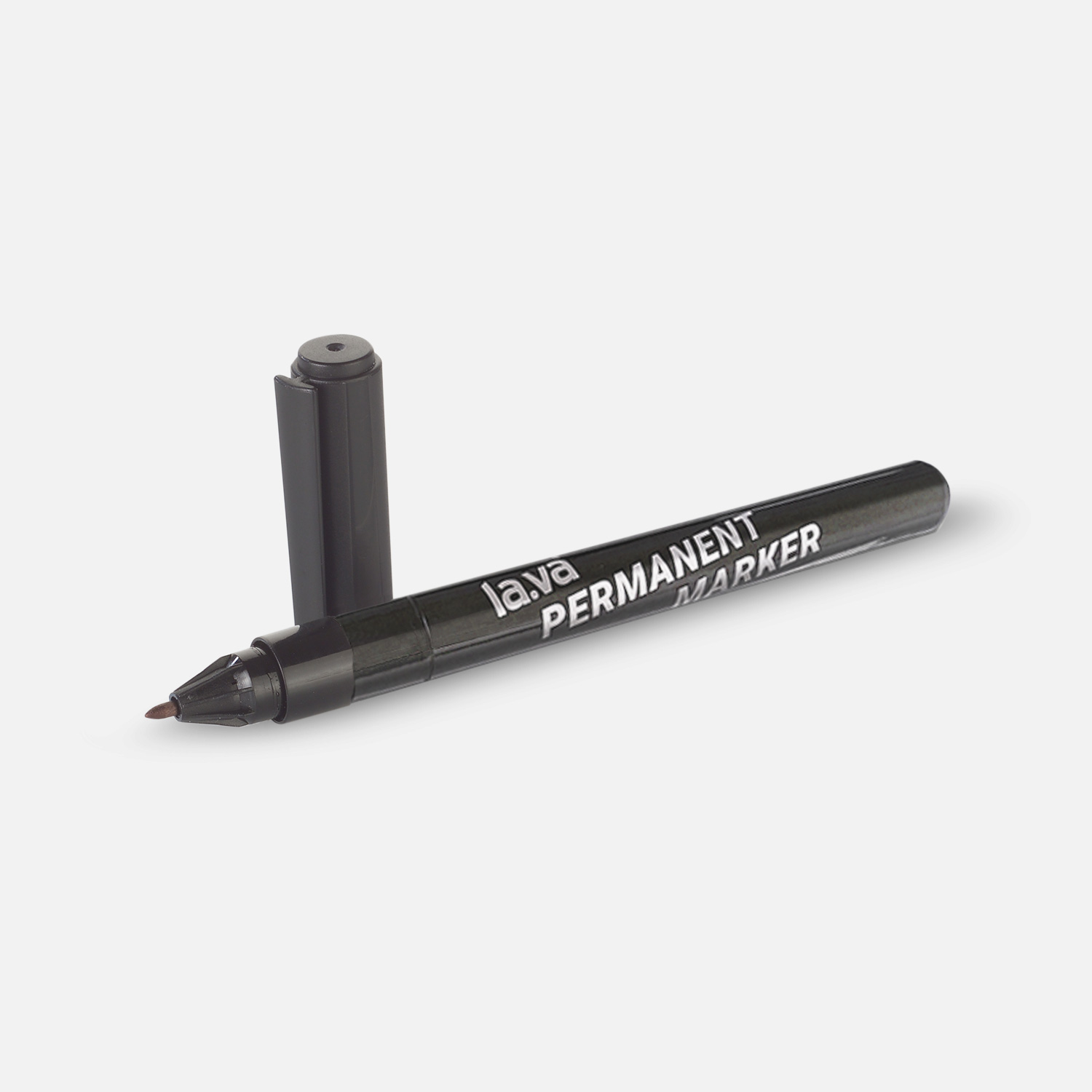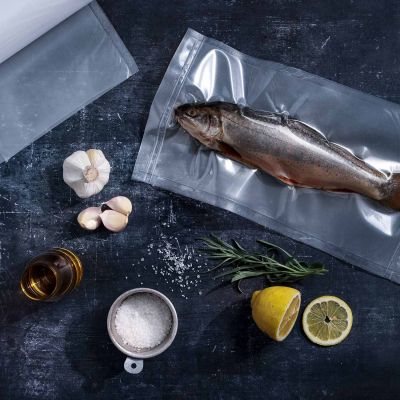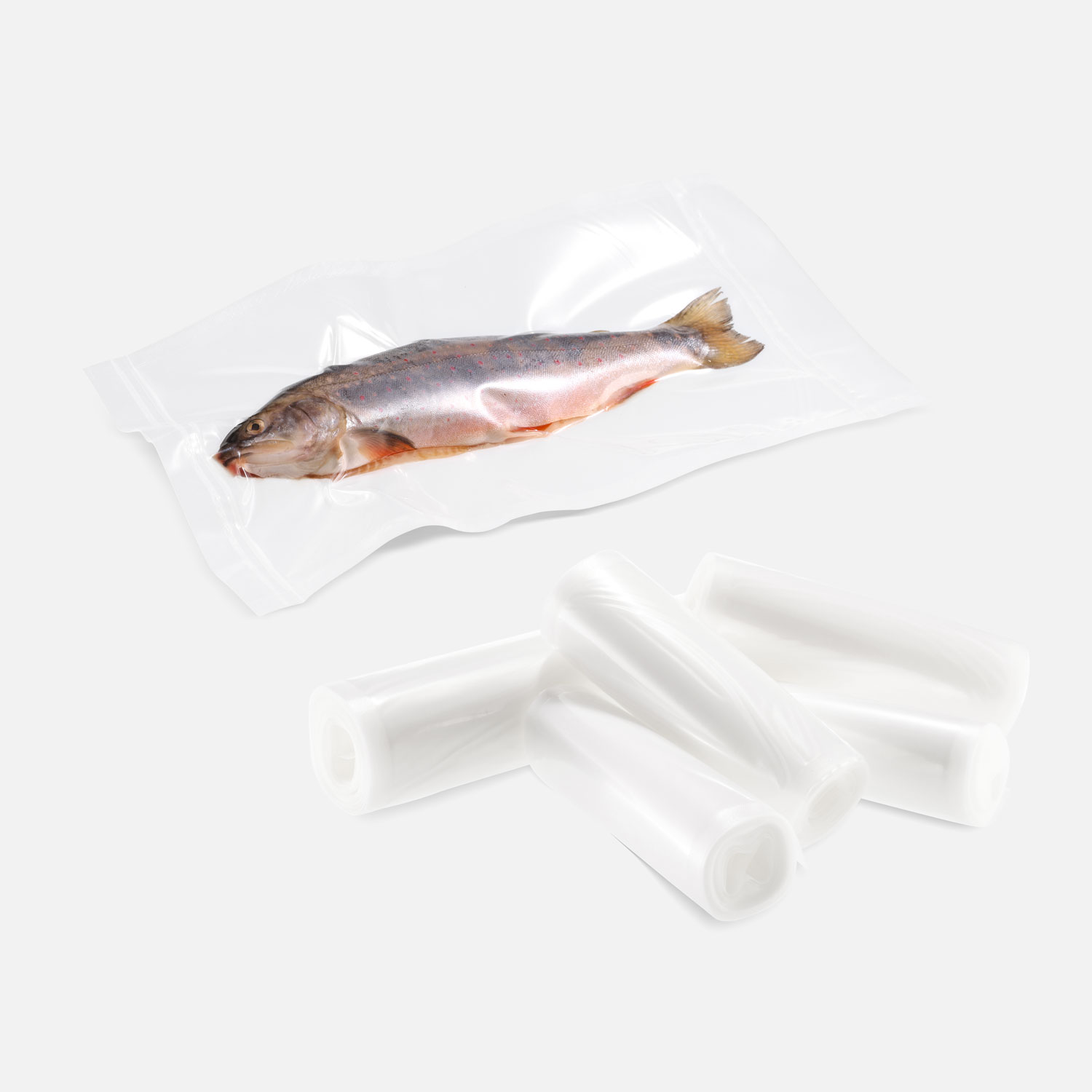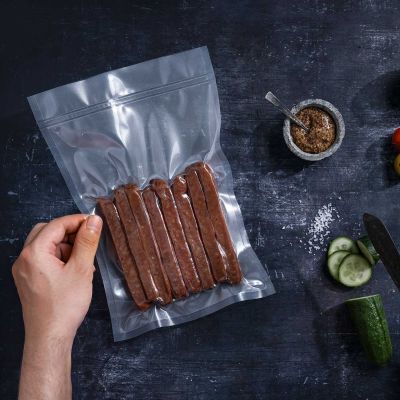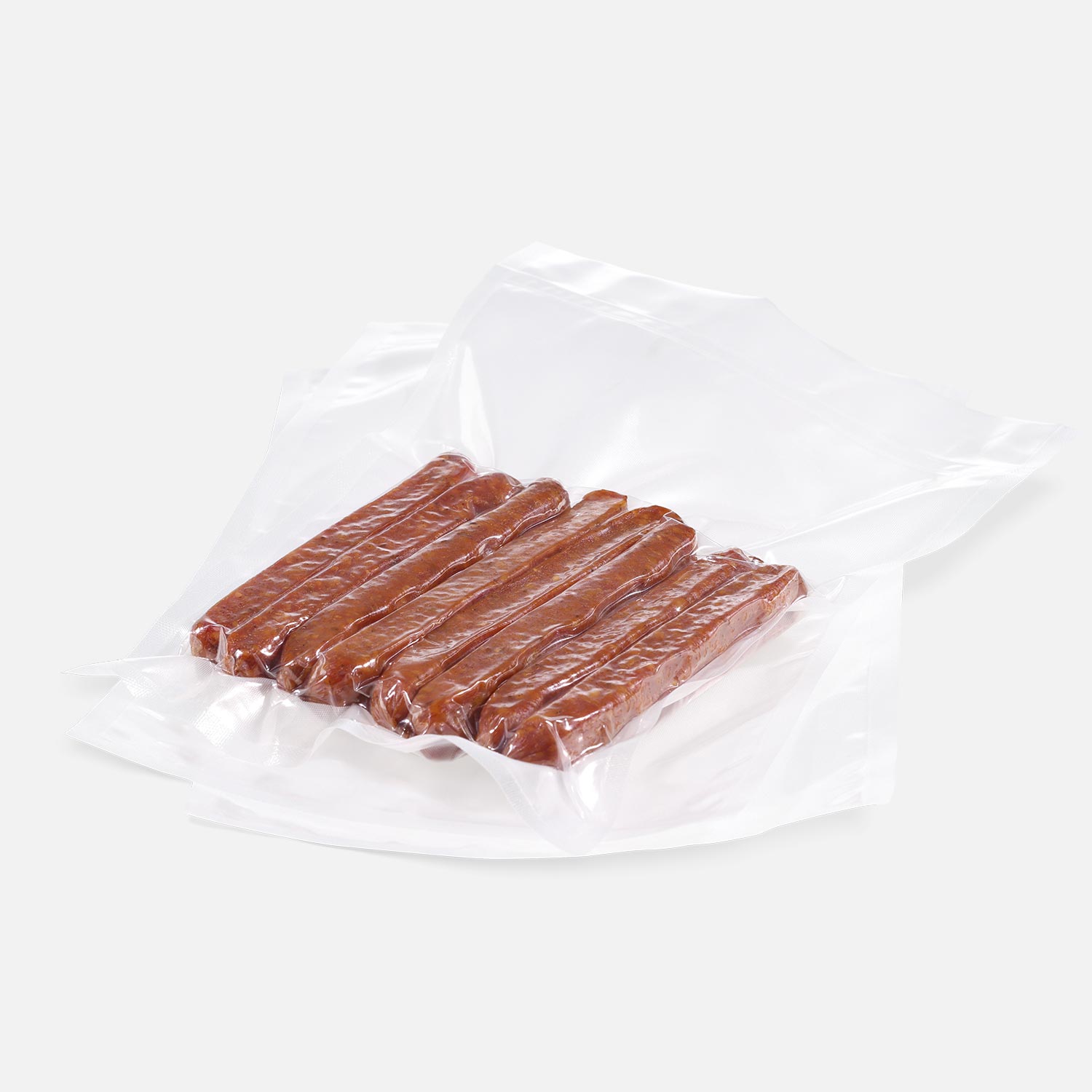What is the shelf life of vacuum-packed meat?

In the realm of culinary preparation, the shelf life of food plays a crucial role. Especially with meat, it's vital that it remains fresh and free from spoilage until it reaches the table. This is where vacuum packaging comes into play - a technique that not only extends the shelf life of meat but also preserves its quality. But how does this process work, and what are the advantages for meat storage?
How does vacuum sealing work with a vacuum sealer?
Vacuum packaging is a technique where food is first placed into specialized vacuum bags and then the air is completely removed to create a vacuum. This process, supported by high quality vacuum sealers, removes oxygen, the primary cause of spoilage, thereby slowing down the degradation of meat.
Benefits of vacuum packaging for meat preservation
Vacuum packaging offers numerous advantages for extending the shelf life of meat. By removing oxygen from the packaging, the growth of bacteria and microorganisms is greatly inhibited, resulting in prolonged freshness. Additionally, vacuum sealing prevents the penetration of foreign contaminants and minimizes moisture loss, thereby preserving the flavor, juiciness, and texture of the meat. This method effectively safeguards the quality of the meat and reduces the risk of spoilage, providing consumers with a longer window of opportunity for consumption and storage.
Furthermore, vacuum sealing meat provides several additional benefits:
- Extension of Freshness: By removing air, the oxidation of the meat is slowed down, thus preserving its freshness over an extended period.
- Protection against freezer burn: Vacuum-sealed meat is less susceptible to freezer burn as it doesn't come into contact with air, which can lead to moisture loss and changes in texture.
- Preservation of flavor: Vacuum sealing with a vacuum sealer helps preserve the natural flavor of the meat by preventing the infiltration of foreign aromas and odors.
- Space saving: Vacuum-sealed meat takes up less space in the freezer or refrigerator since the packaging snugly conforms to the shape of the meat, enabling more efficient storage.
- Prevention of cross-contamination: The airtight seal achieved through vacuum sealing minimizes the risk of cross-contamination with other foods in the refrigerator or freezer.
- Dry Aging: With the use of special dry aging bags, you can produce high quality Dry Aged Beef from your meat using a vacuum sealer.
- Aging: Meat maturation in vacuum is a gentle method to expedite the natural aging process, resulting in tenderer and more flavorful meat.
- Simple portioning: Vacuum-sealed meat can be easily portioned as it is already in an airtight packaging, facilitating preparation and cooking.
- Always available: Frozen vacuum-sealed meat can be spontaneously thawed and consumed as needed, without the necessity of making additional purchases.
Key factors for extended shelf life
Several factors influence the shelf life of vacuum-sealed meat. The initial condition of the meat, storage temperature, humidity, quality, and exposure to light all play crucial roles. It's important to choose high quality meat and store it at the appropriate temperature to ensure optimal shelf life.
Differences in shelf life among various types of meat
The shelf life of vacuum-sealed meat varies depending on the type of meat. For example, beef typically has a longer shelf life compared to poultry. This disparity is due to differences in meat dryness and fat content. Pork can also be effectively vacuum-sealed; however, certain cuts may need to be consumed more quickly than others. It's important to consider the specific requirements for each type of meat.
The following information regarding the shelf lives of various types of meat serves as rough guidelines:
| Meat type | Not vacuum sealed in the refrigerator (+5 / -2 °C) | Vacuum sealed in the refrigerator (+5 / -2 °C) | Not vacuum sealed in the freezer (-15 / -18 °C) | Vacuum sealed in the freezer (-15 / -18 °C) |
|---|---|---|---|---|
| Beef | 3 - 4 days | 30 - 40 days | 6 months | 24 - 36 months |
| Pork | 4 - 7 days | 20 - 28 days | 4 months | 12 - 24 months |
| Game | 2 - 3 days | 30 - 40 days | 6 months | 24 - 36 months |
| Poultry | 2 - 3 days | 6 - 9 days | 6 months | 24 - 36 months |
| Lamb | 2 - 3 days | 3 - 5 days | 3 months | 12 months |
Note: The specified shelf life period refers to vacuum packaging in the bag, and is also dependent on many factors, therefore it is non-binding.
Comparison with traditional methods
In comparison to traditional methods of meat preservation such as refrigeration or freezing, additional vacuum packaging offers superior shelf life. While a regular refrigerator can extend the shelf life of meat by a few days, vacuum-sealed meat can be stored in the freezer for months without losing quality.
How to tell if vacuum-sealed meat is spoiled
Although vacuum-sealed meat has a longer shelf life, it is still important to recognize signs of spoilage. Spoiled meat may have an unpleasant odor, exhibit a changed color, or have a sticky texture. When in doubt, the meat should be discarded to avoid health risks.
Tips & tricks for vacuum sealing meat
When vacuum sealing meat, it's important to use high quality vacuum sealers and vacuum bags. The meat should be fresh and chilled, and carefully prepared to ensure optimal sealing. It's advisable to portion the meat before vacuum sealing and to note the date on the vacuum packaging using labels and a waterproof permanent marker to keep track of the storage time. After vacuum sealing, the meat should be promptly stored in a cool place to maximize shelf life.
Conclusion
Overall, vacuum packaging is an effective method for extending the shelf life of meat and preserving its quality. Through proper preparation, storage, and monitoring, you can ensure that your vacuum-sealed meat remains fresh and delicious until it reaches the table.

